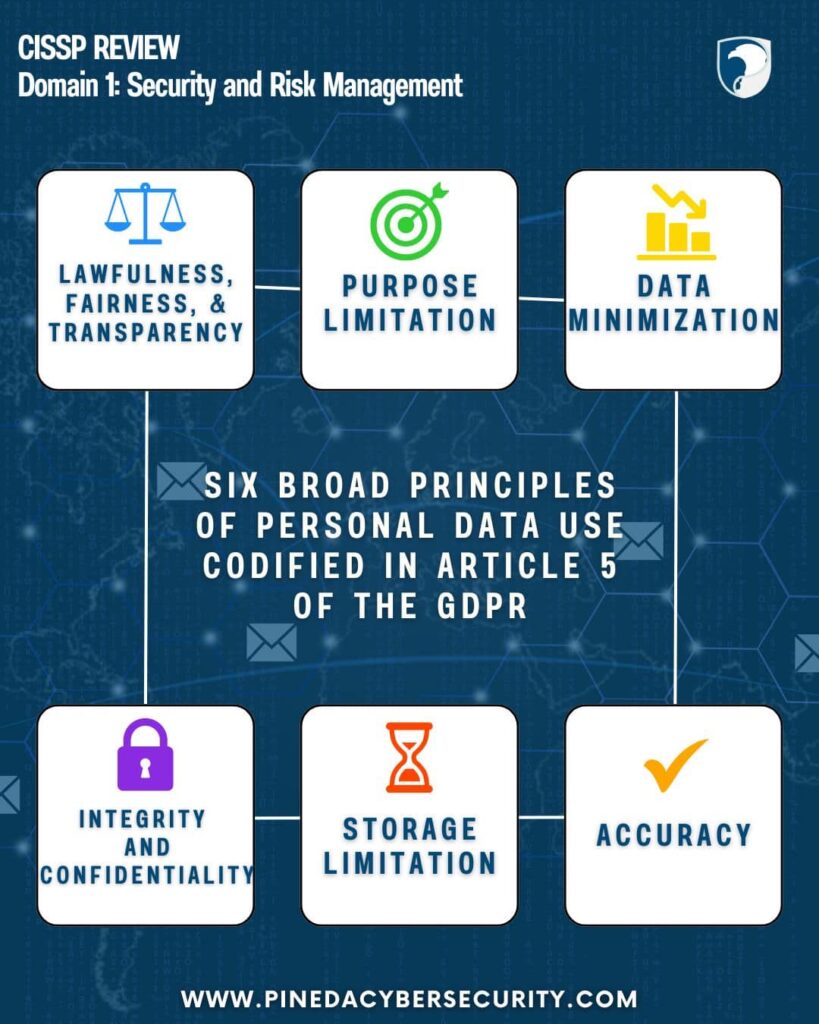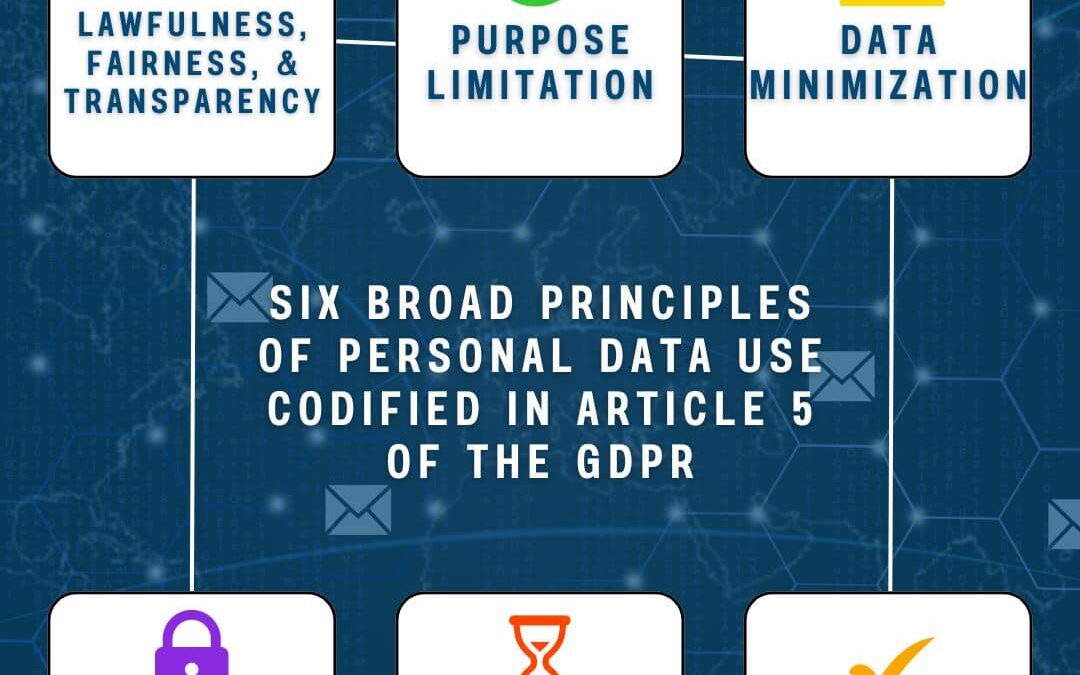This review outlines the six fundamental principles established in Article 5 of the GDPR, guiding the use of personal data:
Lawfulness,Fairness,and Transparency:Data must be collected, processed, used, shared, stored, and destroyed in a manner that is legal, fair, and transparent to both data subjects and auditors.
Purpose and Limitation:Data should be collected and processed for specified, explicit, and legitimate purposes, which can include follow-on analytical, archival, statistical, scientific, or historical research in the public interest.
Data Minimization:The collection, generation, and use of data must be limited to the minimum necessary for the specified purpose.
Accuracy:Data must be accurate and kept up to date. Steps should be taken to allow data subjects to review and request corrections to their data.
Storage Limitation:Data should not be retained longer than necessary for its intended purpose unless it supports follow-on analysis or research in the public interest.
Integrity and Confidentiality:Data must be processed, stored, and transported securely to protect against unauthorized access, use, copying, or modification, including its ultimate destruction when no longer needed.
#PinedaCyberSecurity #CyberSecurityMakesSenseHere #GDPR #DataPrivacy #SecurityManagement #RiskManagement #DataProtection #LegalCompliance #PrivacyPrinciples #DataTransparency #InformationSecurity #DataIntegrity





